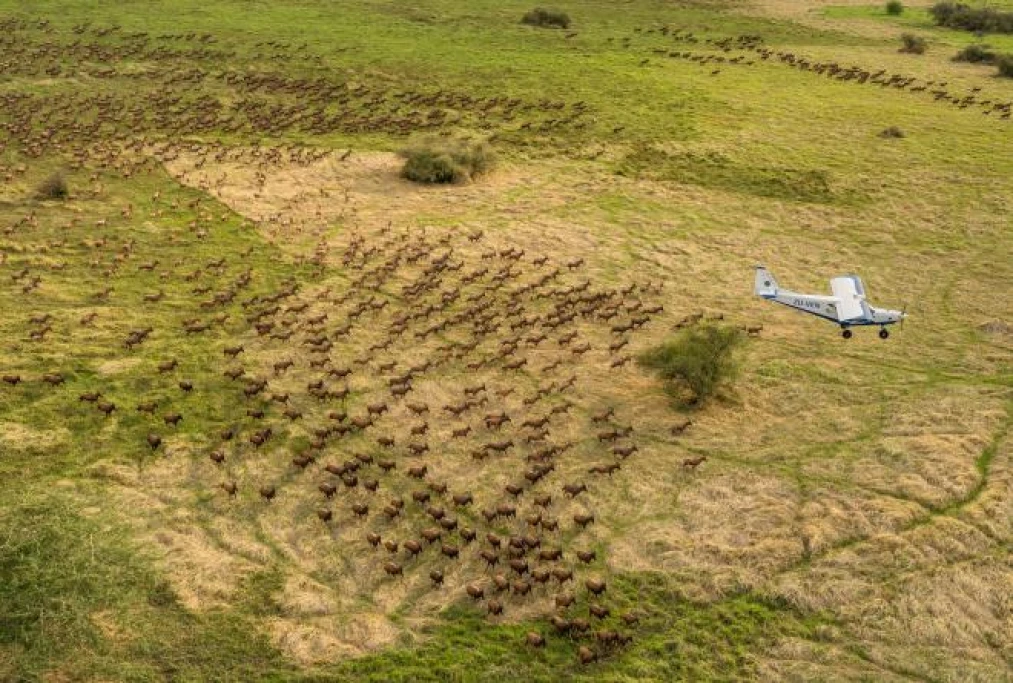
South Sudan marks two years under a 10-year partnership with African Parks to protect Boma and Badingilo National Parks, and the vast Great Nile Migration Environment (GNML), one of the world’s most largest wildlife corridors.
Since the signing of the partnership in 2022, there have
been major changes, from better wildlife monitoring and support for local
communities to improved infrastructure and governance. All of this helps
protect the world’s largest land mammal migration and benefits the people
living nearby.
Over the past year, teams carried out aerial surveys
covering more than 123,000 square kilometers. They also put satellite collars
on over 200 animals and vultures, so experts can track migration routes and
breeding sites in real-time.
Community efforts have gained momentum too, with nine
Transhumance Engagement Officer teams working across 75 pastoral settlements.
Over 1,200 households are now involved in alternative livelihood projects like
beekeeping and agroforestry, which help reduce reliance on bushmeat and
charcoal.
“In just two years, we’ve seen a paradigm shift in how the
GNML is managed,” said Rizik Zakaria, Minister of Wildlife Conservation and
Tourism.
“From cutting-edge monitoring to community empowerment, this
partnership proves that South Sudan can safeguard its greatest natural asset
while uplifting the people who depend on it.”
There have also been improvements to the infrastructure.
Four new moving bases and better control rooms in Badingilo and Boma now
support 24/7 operations, supported by Starlink internet. A new tourism camp in
Maruwa is being built and is expected to open in 2026.
Dorette Smit, African Parks’ Country Representative in South
Sudan, shared, “Working side-by-side with communities and government, we’ve
laid the groundwork for lasting conservation, supporting communities’
alternative ways of livelihood.”
While the progress is encouraging, comparing recent surveys
with data from the 1980s shows that some species that depend on permanent water
sources have declined greatly.
In response, Dudu Douglas-Hamilton, African Parks' Regional
Operations Manager said the partnership is working on protecting key areas,
boosting tourism in Boma, and strengthening local institutions in Badingilo.
“As we mark our second anniversary, it’s more important than
ever, we protect one of the largest intact savanna floodplain ecosystems on
earth to ensure the lasting well-being of both this unparalleled migration and
humanity,” Douglas stated.
In a statement on Wednesday, the team said South Sudan and
African Parks continue to work together to protect and conserve the environment,
demonstrating what can be achieved with teamwork and passion for conservation.